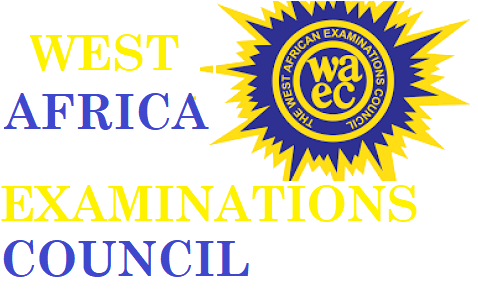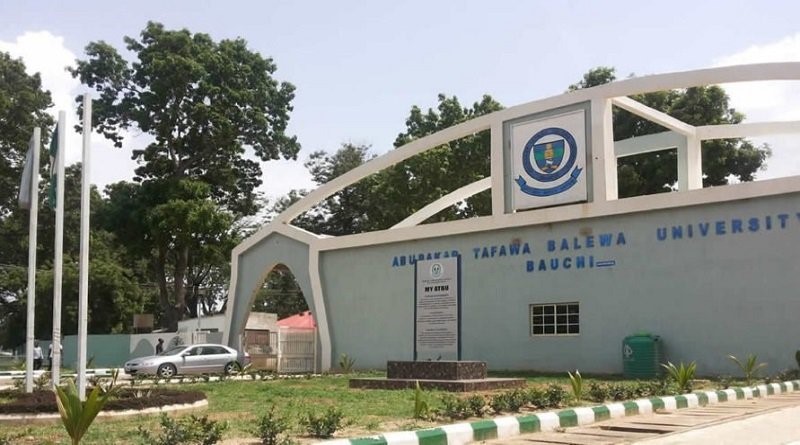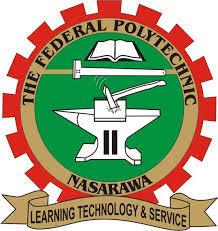WAEC Syllabus for Social Studies. WAEC Syllabus for Social Studies is available for all candidates who want to participate in the examination. The West African examination council (WAEC) has officially introduced a syllabus that will guide all the WAEC candidates who wish to write the WAEC examination this year. For a very successful WAEC Social Studies examination for this year, you need to check out the available areas of concentration. It has been divided into sections with chapters, followed by the topics to be covered in preparation for the exams. In the WAEC Syllabus for Social Studies, you will also see the format of how the WAEC Social Studies questions will be presented.
There are 2 sections to answer questions from. Paper 1 is Objective and paper 2 contains essay question. Where paper one (1) carries 50 minutes for 50 marks; paper two (2) carries 20 marks for 3 hours.

This WAEC syllabus is for both the O’level WAEC and General Certificate Examination (GCE) candidates. Final year students in the senior secondary school level and external candidates are eligible to make use of this syllabus and prepare ahead of the examination. WAEC Syllabus for Social Studies
See the full detailed information concerning the WAEC Social Studies Syllabus below.
PREAMBLE
Social Studies is a study of the contemporary problems of society. The subject prepares the individual to into society by equipping him/her with knowledge about the culture or ways of life of their society, its problems, its values and its hopes for the future. The subject is multi-disciplinary and takes its source from many subjects, e. g. Social Studies, History, Sociology, Psychology, Economics and Civic Education. Essential elements of the knowledge and principles from these disciplines are integrated into a subject that stands on its own.
As a subject social studies helps students to understand their society better; helps them to investigate how their society functions and hence assists them to develop that critical and at the same time developmental kind of mind that transforms societies. Our society has been a slow-moving one. It is hoped that the course will enable students understand the social, cultural, environmental, political and economic issues in the Ghanaian society better. This will enable them to examine the society’s institutions and ways of life with critical and constructive mind. Through this, the country will surely be on the path to better and faster growth and development.
EXAMINATION OBJECTIVES
The examination syllabus is aimed at testing candidates’
- understanding of the components of positive attitudes and values towards individual and societal issues
- knowledge of the components of society and their role
- understanding of the democratic values and how they foster national unity
- understanding of the importance of the institution of marriage and family and their importance to society
- understanding of positive self-concept for the development of the individual, good inter-personal relationships and social harmony
- awareness of socializing agencies and their roles in forging national unity
- understanding of physical and social environment and the need to preserve them
- awareness of socio-economic problems in Ghana and how to solve them for sustainable development
- ability to cope with the problems of social change.
SCHEME OF EXAMINATION
There will be two papers, Papers 1 and 2 both of which must be taken.
PAPER 1: Will consist of fifty multiple-choice objective questions all of which must be answered within 50 minutes for 50 marks.
PAPER 2: Will consist of three sections, A, B and C covering the following areas of the syllabus:
- Section A: The Environment
- Section B: Governance, Politics and Stability
- Section C: Social and Economic Development.
Section A shall contain four questions. Sections B and C shall contain three
questions each. Candidates will be required to answer five questions in all
choosing at least, one question but not more than two questions from each
section.
Each question will carry 20 marks and the paper will last 3 hours.
DETAILED SYLLABUS
SECTION A: THE ENVIRONMENT
- Self-Identify
1.1 Explanation of self’ and capabilities
1.2 False identity and its implications
1.3 Maslow’s Hierarchy of Needs Theory – its Usefulness to the individual
1.4 Developing one’s capabilities
1.5 Self-confidence: its meaning and development
2.0 Adolescent Reproductive Health
2.1 Explanation of terms adolescent, reproductive health and reproductive right
2.2 Characteristics of adolescence
2.3 Irresponsible adolescent behaviour and its implications
2.4 Safety measures for adolescent health
2.5 Fostering good gender relations
2.6 Chastity: meaning and benefits.
3.0 Our Culture and National Identity
3.1 Explain the concept national identity.
3.2 Identification of socio-cultural practices in Ghana
3.3 Explain how Socio-cultural practices in Ghana promote or inhibit development and why some should be changed
3.4 The need for institutionalizing some socio-cultural practices
3.5 Evaluate the importance of national and traditional symbols in fostering national allegiance.
3.6 Identify those elements of Ghanaian culture that bind us together
3.7 Identify some Ghanaian values and traits
4.0 The Institution of Marriage
4.1 Explanation of courtship and marriage
4.2 Purpose of marriage
4.3 Preparation towards marriage
4.4 Types of marriage in Ghana – process and residence
4.5 Challenges in marriage
4.6 Causes and effects of broken in marriages
4.7 Ways for sustaining marriages.
5.0 Individual obligations in the family
5.1 Explanation of family and types
5.2 Functions and importance of the nuclear and extended families
5.3 The roles of individual members of the family
5.4 Systems of inheritance
5.5 Importance of family as an institution
5.6 Implications of abandoning the family
6.0 Responsible Parenting
6.1 Differences between parenthood and parenting
6.2 Responsibilities of parents
6.3 Consequences of irresponsible parenting
6.4 Preventing and managing parent- child conflict
6.5 Ways by which children cause their parents to be irresponsible.
7.0 Socialization and Our Social Environment
7.1 Explanation of socialization; agencies of socialization and agents of socialization
7.2 The roles of agents and agencies of socialization
7.3 Deviant behaviour and its implications on the society
7.4 Challenges agent/agencies face in the socialization process
7.5 Factors that promote better interpersonal relationships in groups and individuals in Ghana
8.0. Our Physical Environment and Environmental challenges
8.1 Explanation of the terms physical environment and environmental Challenge
8.2 How human activities in Ghana are influenced by the physical environment
8.3 The impact of human activities on the physical environment- positive and negative and their effects on man
8.4 Measures for protecting the environment
- Education and Social Change
9.1 Explanation of education, its forms and purposes.
9.2 Explanation of social change.
9.3 The impact of education on national development.
9.4 The role of education in social change in Ghana.
SECTION B: GOVERNANCE, POLITICS AND STABILITY
10.0 National Independence and Self Reliance
10.1 Explanation of political independence and self-reliance
10.2 Challenges/responsibilities of political independence
10.3 Reasons why Ghanaians misconstrued implications of independence.
10.4 How to overcome the challenges of political independence in Ghana
10.5 How to apply the concept of independence and self-reliance to one’s life.
- Peace Building and Conflict Resolution
11.1 Explanation of the concepts peace building and conflict resolution
11.2 Source of conflicts and their effects
11.3 Identify the effects of conflict on the society
11.4 Conditions for peace building
11.5 Processes of peace building
- Leadership and Followership
12.1 Meaning of leadership and followership
12.2 Qualities of a leader and a follower
12.3 Kind of leaders
12.4 Leadership styles
12.5 The role of a leader and follower in nation building
13.0 Our Constitution, Democracy and Nation Building
13.1 Explanation of constitution, democracy and nation-building
13.1 Features of democracy
13.3 Importance of constitution in nation-building
13.4 The role of democracy in nation-building
13.5 Reasons why unity and development are more sustainable under democratic government
13.6 How to prevent autocratic rule
14.0 Rights and Responsibilities of the Individual
14.1 Explanation of rights and responsibilities
14.2 Types of rights and responsibilities
14.3 Possible conflicts in the exercise of rights and responsibilities
14.4 Reasons for curtailment of rights
14.5 The need for citizens to perform their responsibilities
15.0 Ghana and the International Community
15.1 Explanation of globalization and international community
15.2 Forms of co-operation Ghana has with other nations and bodies
UNO, AU, ECOWAS, Commonwealth
15.3 Origin and objectives of New Partnership or Africa’s Development (NEPAD)
15.4 Benefits of NEPAD to Ghana
SECTION C: SOCIAL AND ECONOMIC DEVELOPMENT
16.0 The Youth and National Development
16.1 Meaning of youth
16.2 Challenges facing the youth in their efforts to contribute to national development
16.3 Avenues for youth training in Ghana
16.4 Avenues by which the youth can get employment
16.5 Benefits of financial security to the individual and the nation
16.6 Planning sustainable financial security for the future
16.7 Explanation of the work of some financial institutions in the country
16.8 The role of the youth in national development
17.0 Science and Technology
17.1 Differences between science and technology
17.2 The role of science and technology in national development
17.3 Measures for promoting science and technology in Ghana
17.4 How science and technology is used in the development and production in the world.
17.5 Ways by which Ghana could promote development through increase application of science and technology
18.0 Resource development and Utilization in Ghana
18.1 Explanation of Resource, Development and Utilization
18.2 Types of resources and the relationship among them in production
18.3 Measures for developing human resources
18.4 How human resources and other resources contribute to national development
19.0 The role of the Individual in Community Development
19.1 Explanation of community and community development
19.2 Identification of levels of community
19.3 Factors involved in community decision making
19.4 The need for vision, initiative and drive in community development
19.5 Explain what community development involves
19.6 Ways by which individuals can contribute to community development
20.0 Promoting National Socio–Economic Development
20.1 Explanation of the concept Development
20.2 Identification of components of nation socio-economic life
20.3 Characteristics of a buoyant economy
20.4 Sources of development problems in Ghana
20.5 Measures Ghana has taken to improve development and standard of living in the country.
20.6 Ways of improving the standard of living in Ghana
- Sustainable Development
21.1 Explanation of sustainable development and maintenance culture
21.2 Factors hindering sustainability of growth and development in Ghana
21.3 Measures to sustain growth and development
21.4 Measures to improve quality human resources and prevent their loss
21.5 Ways of ensuring sustainability in a person’s life
21.6 Explain how to avoid incurring unmanageable debts
21.7 How to avoid falling victim to financial fraudsters
22.0 Population growth and Development
22.1 The structure of Ghana’s population and social and economic implication
22.2 Social and Economic implication of Ghana’s population structure
22.3 Measures for breaking the vicious cycle of Ghana’s rapid population growth
22.4 Efforts made towards implementation of Ghana’s 1994 population policy
22.5 Why it is difficult for Ghana to achieve the 4th and 5th-millennium development goals
22.6 Give reasons for a person’s preference for an ideal family size
- The World of Work and Entrepreneurship
23.1 Explanation of work, productivity and entrepreneurship
23.2 Types of enterprises in Ghana
23.3 Qualities of an entrepreneur
23.4 Basic requirements for starting a business enterprise and sustaining it
23.5 Contribution of local enterprises to economic development
23.6 Negative attitudes to work and their effect on productivity
23.7 Positive work attitudes that employers expect of workers
Check and Confirm: How much is Dollar to Naira Pounds to Naira Rate Today



![UNILAG HRDC Application form 2024/2025 [Advanced Diploma, Diploma & Professional Certificate courses] UNILAG HRDC Application form 2024/2025 [Advanced Diploma, Diploma & Professional Certificate courses]](https://infoguidenigeria.com/wp-content/uploads/2021/08/UNILAGOS.jpg)